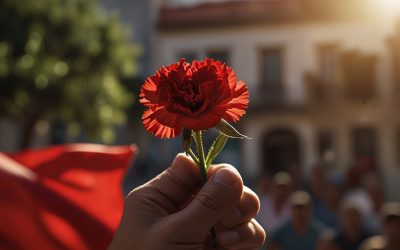How Carnation Day Became a Celebration of Passion and Peace

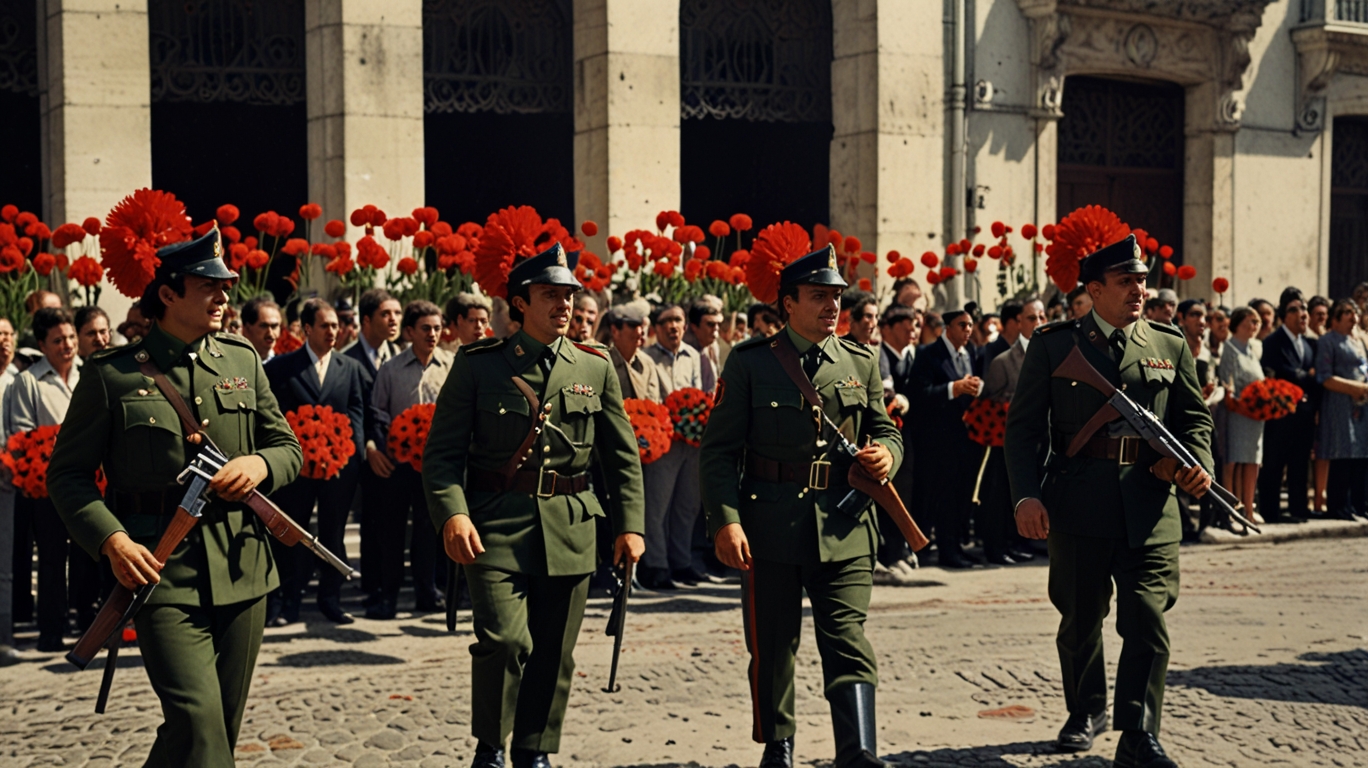
Red Carnation Day, marked annually on April 25th, is one of Portugal’s most profound national commemorations, a date that holds the memory of liberation and a collective victory over authoritarian rule. Its origins trace back to 1974, when a group of young military officers organized what became known as the Carnation Revolution, a coup that dismantled the Estado Novo dictatorship which had gripped Portugal for nearly half a century. This dictatorship, under the leadership of António de Oliveira Salazar and later Marcelo Caetano, maintained power through censorship, political oppression, and prolonged colonial wars in Africa that drained resources and lives. On the morning of April 25, troops marched into Lisbon, not to impose fear, but to restore hope. What distinguished this revolution from so many others in world history was its astonishing lack of bloodshed; in fact, it is remembered as one of the rare examples of a truly peaceful uprising. The spark of symbolism came when a local florist offered red carnations to the soldiers, who placed them in their rifle barrels. This spontaneous act transformed the coup into a powerful display of unity and peace. Instead of being stained by violence, the revolution became immortalized by the image of flowers blossoming in the heart of rifles—an unforgettable testament to the idea that freedom and justice can be reclaimed not only with strength but also with compassion.
A Nation’s Shift from Dictatorship to Democracy
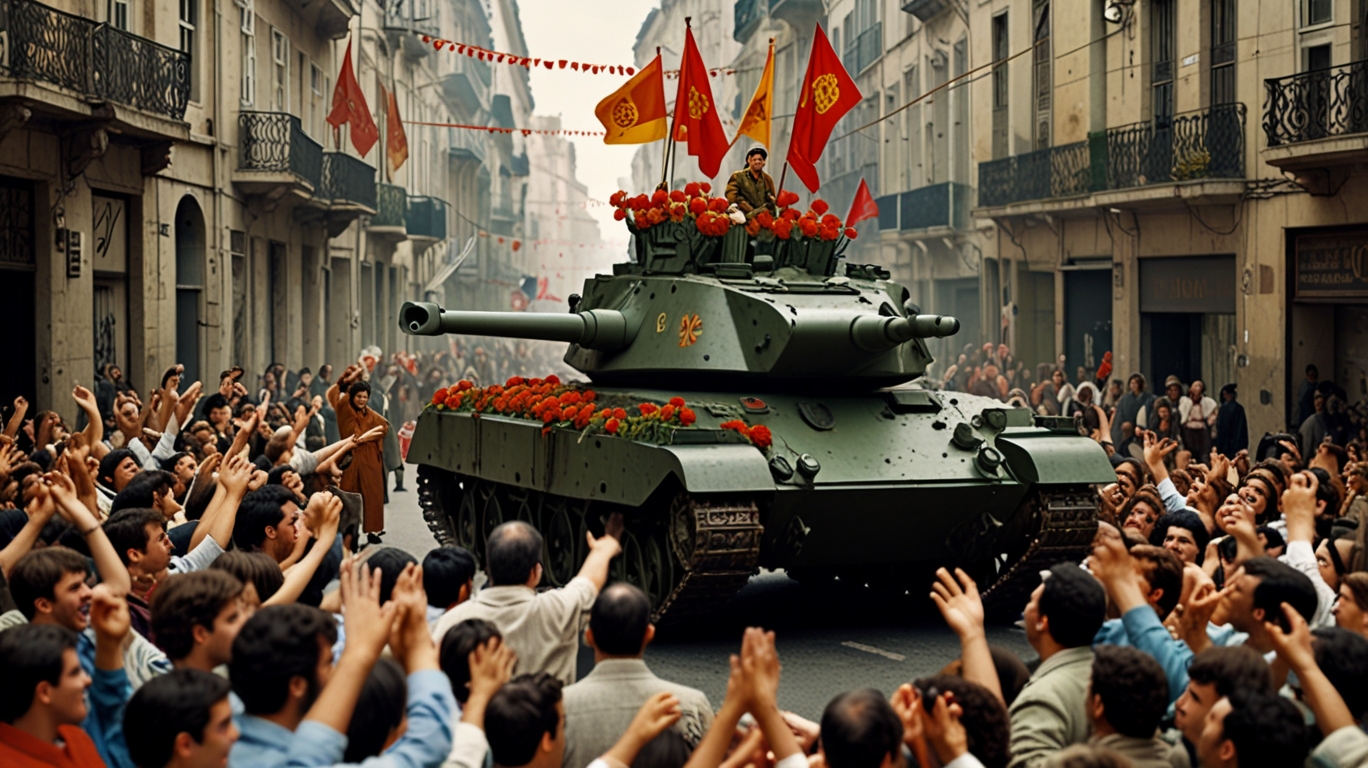
Before the Carnation Revolution, Portugal was a country living in silence and shadows. For decades, the Estado Novo regime had maintained an iron grip over the people through a mixture of propaganda, censorship, and strict control by the secret police known as the PIDE. Those who opposed the system risked imprisonment, torture, or exile, while the ordinary citizen lived under constant surveillance and fear of speaking freely. Economically, Portugal lagged behind its European neighbors, locked into outdated structures while burdened by colonial wars in Angola, Mozambique, and Guinea-Bissau. These wars drained the national treasury and sent countless young men to fight in conflicts many did not believe in. By the early 1970s, discontent was boiling beneath the surface, and a group of junior military officers—frustrated with the endless colonial wars and inspired by democratic ideals—planned a coup that would topple the regime. When April 25 arrived, the streets of Lisbon were filled not with violence but with people embracing soldiers, cheering them on, and demanding freedom. The regime collapsed in less than 24 hours, and suddenly, a nation that had been silenced for half a century found its voice. What followed was not immediate perfection, but the beginning of a fragile, hopeful transition toward democracy. For many Portuguese, this day represented not only the fall of a dictatorship but also the rebirth of national identity. Carnation Day became etched into collective memory as the moment when Portugal turned its back on repression and stepped into an era of freedom, equality, and self-determination.
The Symbolism of the Red Carnation
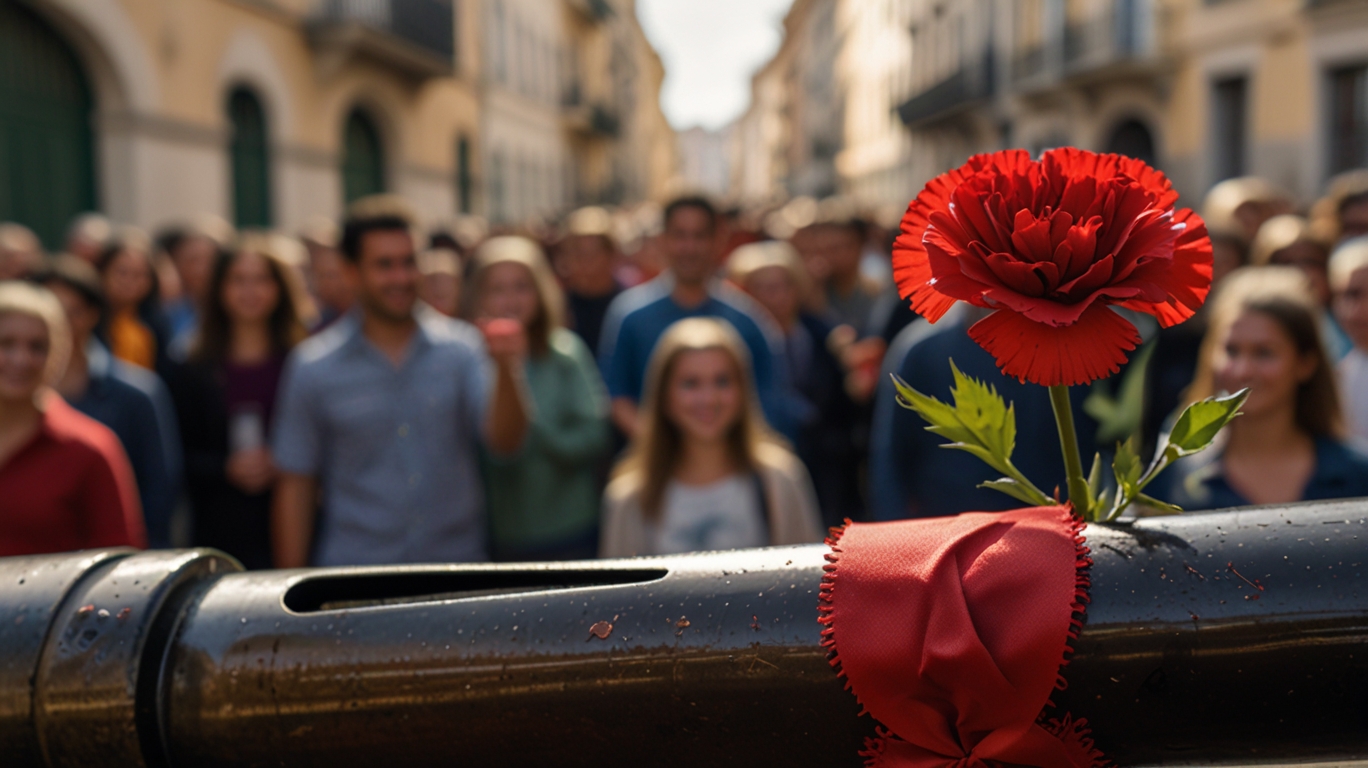
The red carnation has always been a flower associated with love, admiration, and courage, but in Portugal, its meaning took on an entirely new dimension in the spring of 1974. In a moment of chance yet deep symbolism, Celeste Caeiro, a Lisbon florist, distributed carnations to soldiers stationed outside a restaurant where she worked. Instead of tucking the flowers into their uniforms or discarding them, the soldiers slid the blooms into the barrels of their rifles. This image spread quickly, capturing the hearts of civilians and establishing the carnation as the living emblem of the revolution. Red, the color of blood, became redefined as the color of freedom and resilience; it stood for the sacrifices of the past and the promise of a brighter future. What was once a common flower suddenly became the symbol of one of the most peaceful revolutions in world history. Beyond the immediate event, the red carnation has continued to resonate across generations, reminding Portuguese citizens that passion does not always require violence, and courage does not always demand force. It reimagined what resistance could look like, showing that even in the face of authoritarianism, beauty, peace, and solidarity can triumph. Today, on Carnation Day, carnations flood Portugal’s streets, carried by young and old alike, each bloom carrying the weight of history and the hope of sustaining a democracy won through unity and compassion.
How Portugal Celebrates Carnation Day Today
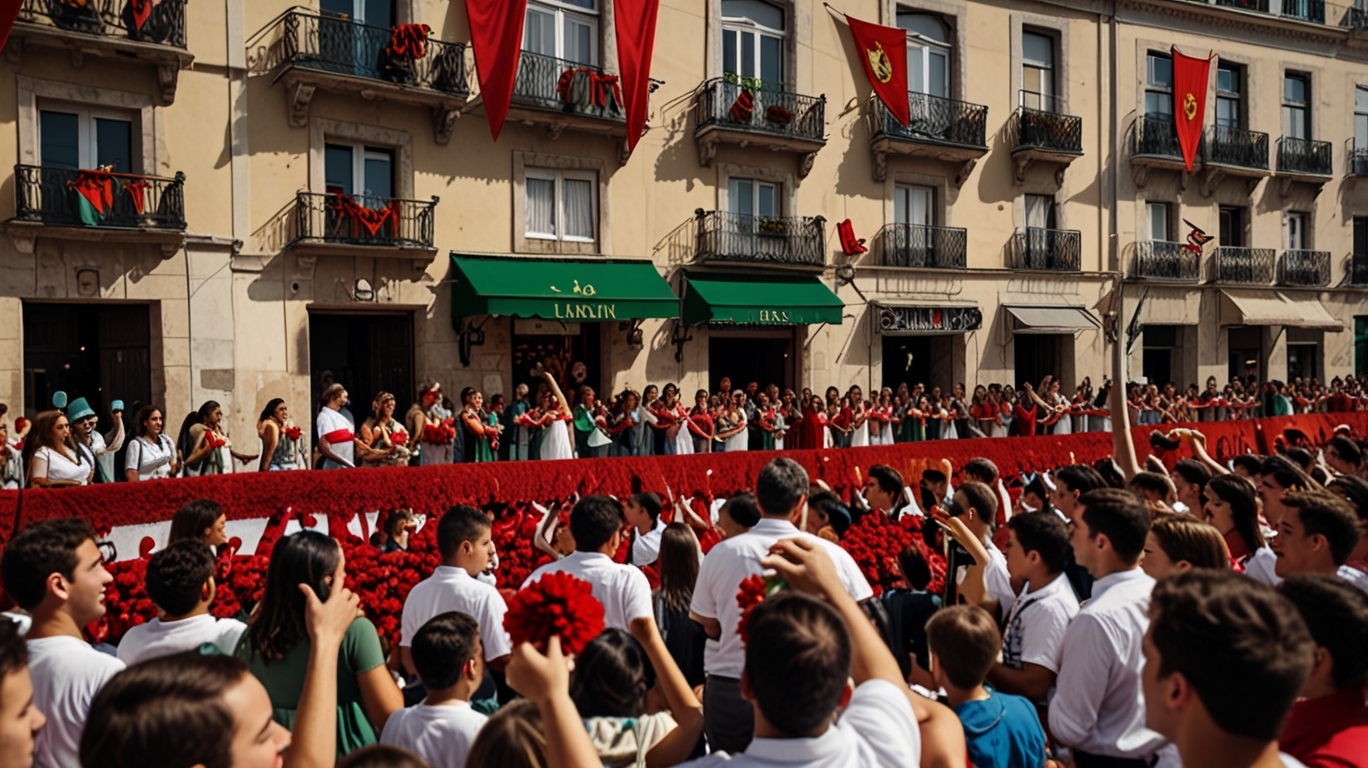
Every year on April 25th, Portugal transforms into a living commemoration of its revolution, blending memory with festivity, history with celebration. Across the country, the day is marked with parades, concerts, and gatherings that bring together communities to reflect on the hard-won freedoms of the past. In Lisbon, Avenida da Liberdade becomes a central stage for processions where people wave flags, hold red carnations, and listen to music that recalls the spirit of the revolution. Political leaders deliver speeches reminding citizens of the importance of democracy, while schools host special programs to teach students about the revolution’s significance, ensuring the story continues to be passed on. Many Portuguese also take the day to gather with family and friends, sharing meals and recounting stories from older generations who lived through the dictatorship and the revolution itself. Cultural events such as poetry readings, art exhibitions, and concerts highlight the themes of freedom and justice, blending creativity with remembrance. The streets, balconies, and town squares are decorated with carnations, creating an atmosphere that feels both celebratory and solemn. For many, Carnation Day is not just a date on the calendar—it is a living reminder that democracy must be cherished, defended, and nurtured, a day that calls citizens to reflect on what was gained and what must be protected for the future.
Carnation Day Beyond Portugal
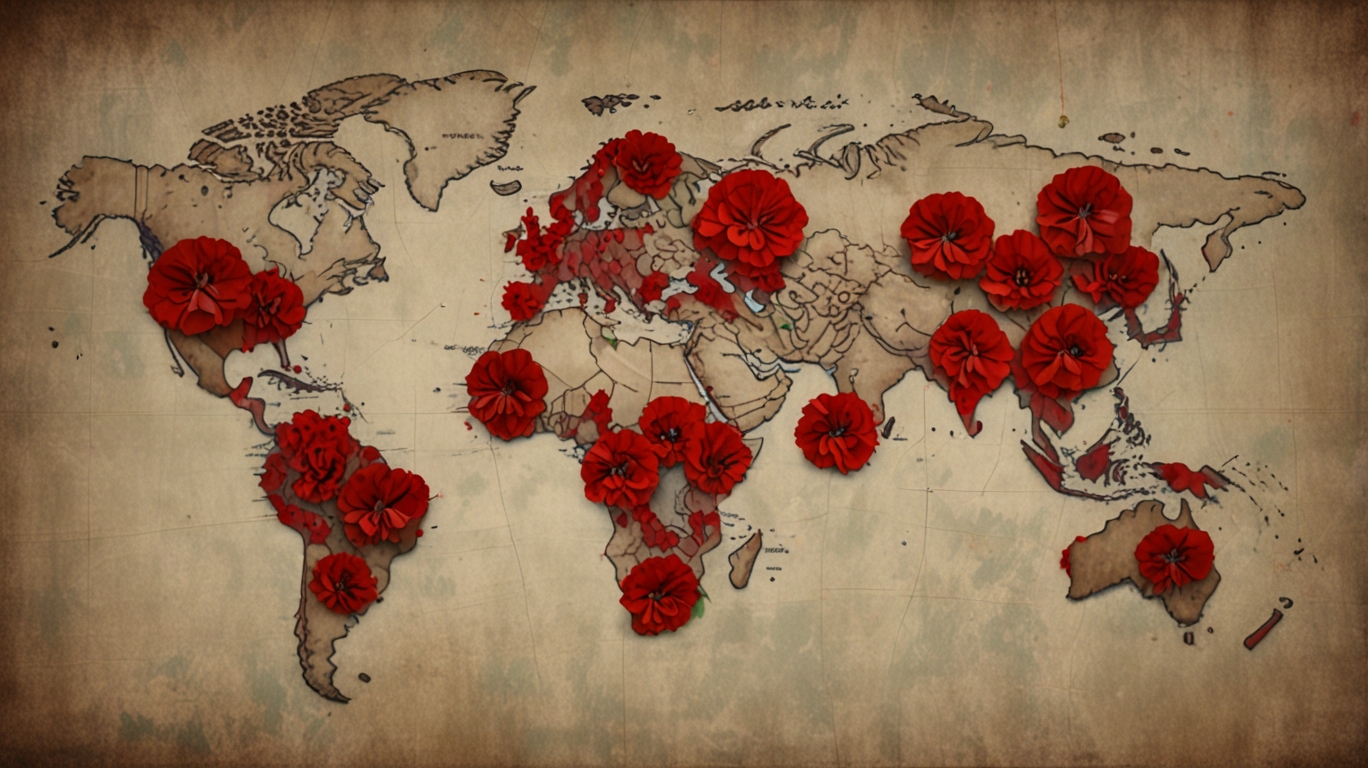
While Carnation Day is deeply tied to Portuguese identity, its message has reached well beyond national borders, inspiring global movements and serving as an example of how revolutions can succeed without violence. The peaceful nature of the Carnation Revolution has been studied by historians and admired by activists worldwide as proof that meaningful change does not require the destruction of human lives. In an era when many revolutions were synonymous with chaos and bloodshed, Portugal offered a striking alternative: solidarity, flowers, and unity as tools of transformation. The imagery of red carnations in rifle barrels has since become a universal symbol for nonviolent resistance, often referenced in discussions of democratic struggles elsewhere in the world. Beyond political movements, Carnation Day has also inspired artists, writers, and filmmakers who see in its story a unique combination of passion and peace. For nations grappling with authoritarianism, the Portuguese experience serves as both a lesson and a beacon of hope, showing that even in the most repressive conditions, collective willpower can rewrite the course of history. By celebrating Carnation Day, Portugal reminds the global community that the path to freedom can be guided by ideals and imagination, not just confrontation and war.
The Lasting Legacy of Passion and Peace
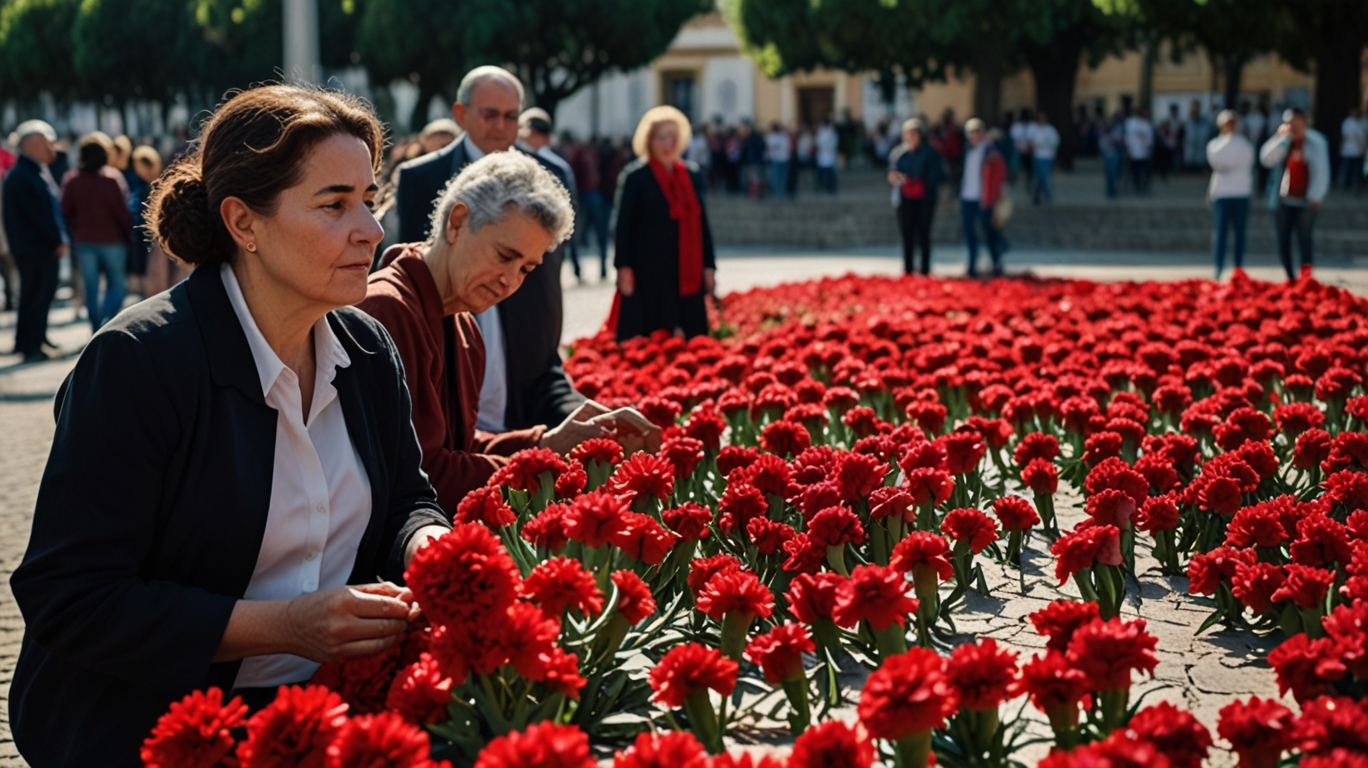
Today, half a century after the events of 1974, the legacy of Carnation Day remains as vivid and powerful as ever. For Portugal, it is more than a public holiday; it is a cornerstone of national identity and a continual reminder of the fragile yet resilient nature of democracy. The image of soldiers smiling as they march with carnations in their rifles has become iconic, embodying the possibility of achieving radical change without violence. Every year, when Portuguese citizens lay carnations at monuments, attend parades, or share stories of the revolution, they are not only commemorating a historic day but also reaffirming their commitment to the values of freedom, justice, and unity. The red carnation stands as a timeless symbol of passion—representing the determination of the people to live with dignity—and peace, reminding future generations that resistance can be beautiful and that courage can be compassionate. Even as Portugal faces modern challenges, Carnation Day continues to inspire the belief that democracy is not simply inherited but must be constantly protected and renewed. Its story is a testament to the enduring power of symbols, the transformative strength of collective action, and the unbreakable bond between passion and peace that continues to guide Portugal forward.
RELATED POSTS
Red Carnations and Revolutions: Love and Freedom in Portugal
The story of Red Carnation Day in Portugal is one of those rare moments in history where the symbolism is as striking as the event itself. It is a day when a flower—humble, vibrant, and full of meaning—came to represent a nation’s fight for dignity, unity, and a...
